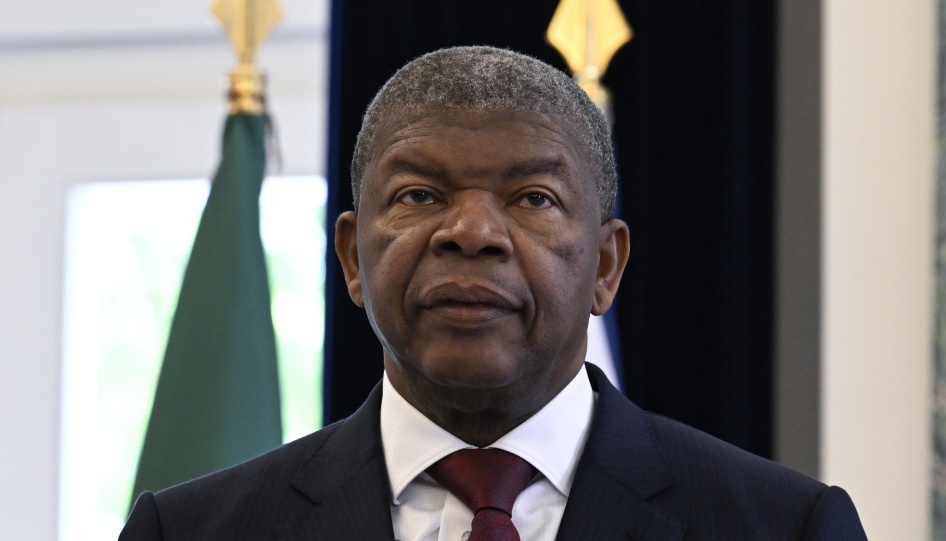(Johannesburg) – Angolan President João Lourenco has signed into law two bills that fail to meet international human rights standards and will severely restrict freedoms of the media, expression, and association, Human Rights Watch said today.
Angola’s National Assembly approved the Bill on the Crimes of Vandalism of Public Goods and Services on July 18, 2024, which provides prison terms of up to 25 years for people who participate in protests that result in vandalism and service disruptions. On August 7, the National Assembly enacted the National Security Bill, which permits excessive government control over media, civil society organizations, and other private institutions. The president signed both bills on August 29.
“The government’s adoption of two repressive laws portends serious challenges to the operation of media and civil society groups in Angola,” said Zenaida Machado, senior Africa researcher at Human Rights Watch. “The authorities should retrace their steps and repeal these new laws to protect the space for free and open media in the country.”
Domestic and international human rights groups, including Human Rights Watch, and legal experts have criticized the new laws. The Crimes of Vandalism Bill contravenes the rights to freedom of expression, assembly, and the media protected by both the Angolan Constitution and the International Covenant on Civil and Political Rights, which Angola ratified in 1992, as well as other international and regional human rights treaties.
Articles 8 and 15 of the law on Crimes of Vandalism impose prison terms of up to 15 years for people who “provide, disseminate or publish by any means information relating to security measures applicable to public goods and services.” Article 8 defines the simple act of recording or facilitating the recording, through analogue or digital media, photographs, videos, or drawings, of the security measures for public infrastructure and services as an attempt against the security of public goods and services.
Article 23 allows the authorities to adopt “appropriate measures” to prevent the destruction and damage of public infrastructure or services, without specifying what would constitute “appropriate measures.”
The Association for Justice, Peace and Democracy, an Angolan group, told Human Rights Watch that the law empowers the government to prosecute anyone who organizes protests against government conduct and policies. The United Nations Special Rapporteur on the rights to freedom of peaceful assembly and of association, Gina Romero, had urged Angola’s government and National Assembly not to adopt legislation that could be used limit basic rights.
The National Security Bill also contains provisions contrary to national, regional, and international human rights law. For instance, article 36 gives government security forces the authority to prohibit public or private radio stations from broadcasting and to disrupt some telecommunication services under “exceptional circumstances” without a court order. The bill does not specify what would constitute “exceptional circumstances.” It also authorizes security forces to inspect “establishments or other public places or places open to the public” and “surveil [their] security equipment,” without judicial approval or oversight.
Article 40 requires workers of public and private companies and others to report to security forces any facts they become aware of in the course of their duties or because of them that constitute risks and threats to national security. Failure to abide by this provision may result in criminal prosecution.
Over the past decade, the Angolan government has frequently either enacted or attempted to enact repressive legislation. In January 2017, then-President Jose Eduardo Dos Santos signed a media law that granted the government and ruling party expansive authority to interfere with the work of journalists and potentially to prevent reporting on corruption or human rights abuses, severely limiting freedom of expression. In May 2023, the National Assembly voted on the first draft of the law on the status of nongovernmental organizations, which civil society groups said contradicts Angola’s international legal obligations to uphold the rights to freedom of expression and peaceful assembly. Following opposition from rights organizations, the bill was withdrawn pending further consultations.
“The Angolan government has again ignored concerns from civil society groups that sends a message that it does not intend to stop its attempts to limit citizens’ rights,” Machado said. “Angola’s international partners should press the government to uphold its commitments to respect free speech by repealing the new laws or bringing them in line with international human rights standards.”








